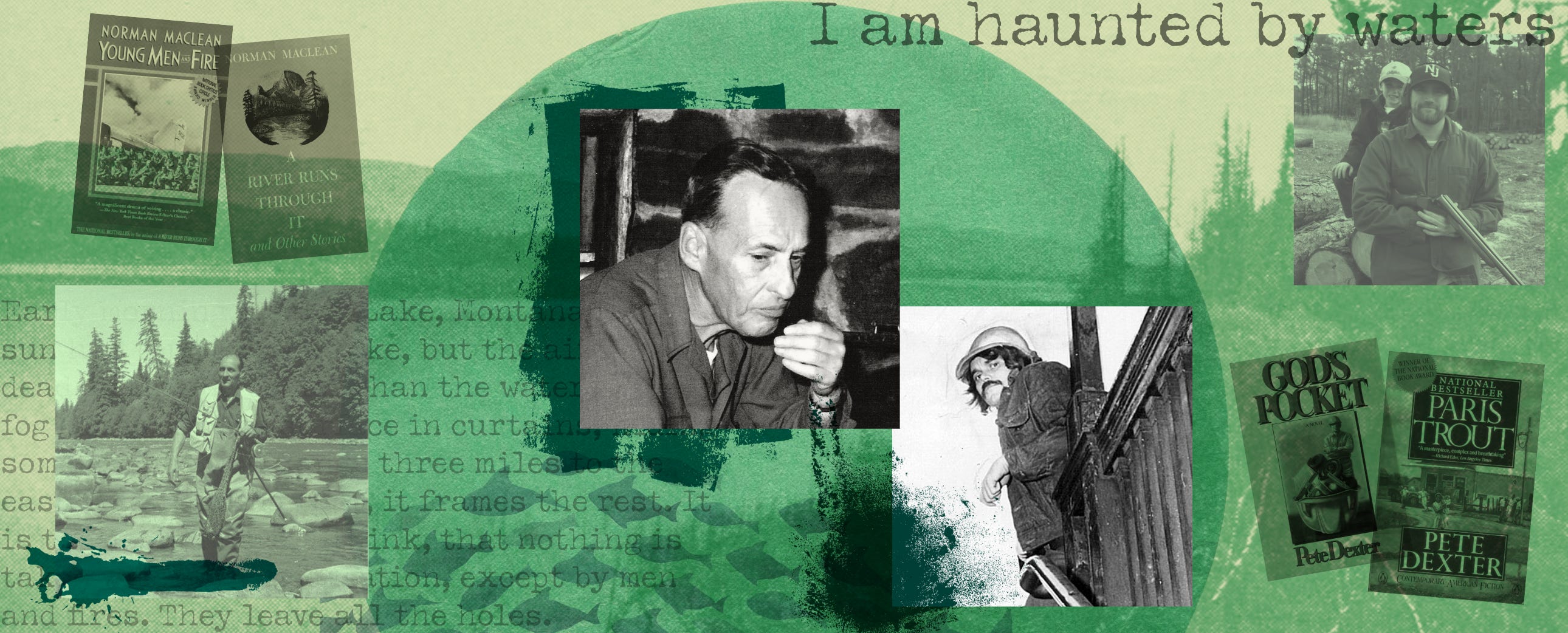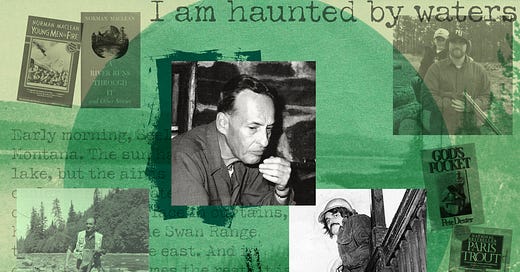A Writer Obsessed With a Writer Obsessed With a Writer
While looking for guidance from his literary hero, Norman Maclean, Jason Nark discovered Pete Dexter—whom he found just as intriguing. He tracked Dexter down to talk about the writer they both loved.
This piece is the third in our series, The Art of Narrative Storytelling, a special collaboration from Narratively and Creative Nonfiction that explores how writing moves us and changes us in ways we might never expect. You can learn more about this special series and experience the rest of the stories as we publish them here each week throughout June.

Sometimes, when red-winged blackbirds sing in the reeds or clouds turn electric pink in the day’s afterglow, nature will untie my mind and I’ll forget to keep fishing. My thoughts will drift over the water while I take a beat from my favorite pastime and settle on people I’ve loved and lost, on writing or, often, on the late author Norman Maclean.
A literature professor at the University of Chicago for nearly a half-century, Norman Maclean equated fishing with religion, his Montana river valleys with cathedrals. His 1976 semi-autobiographical novella, A River Runs Through It, the book that made Maclean a household name, is a lyrical meditation on the high art of fly-fishing. It’s scripture for some, myself included.
I first read A River Runs Through It in graduate school for an influential nature writing class, and it’s stuck with me ever since, a steady guide through the changing seasons of my life. Sometime around 2012, while writing a long essay about fatherhood and the outdoors for a short-lived weekend publication called SportsWeek from the Philadelphia Daily News, I was looking to Maclean, once again, for guidance and stumbled upon a 1981 profile of him in Esquire called “The Old Man and the River.” The piece delves into Maclean’s obsessive process, his writing routines and the fact that he became an author later in life. I checked the byline: It was written by Pete Dexter.
When I found the Esquire profile, I was seeking inspiration from Maclean for my essay, not from the profile’s author. Magazine profiles tend to be formulaic, I thought. You learn what day of the week it is, what the weather’s doing and then the author describes her breakfast order as she waits for the reluctant celebrity she’s profiling to show up in a trendy cafe. Soon you learn what the celebrity eats too. I guess it’s better than a phone interview? But Dexter’s Esquire piece created a sense of place I hadn’t seen, something that felt new and timeless at once.
Keep reading with a 7-day free trial
Subscribe to Narratively to keep reading this post and get 7 days of free access to the full post archives.



